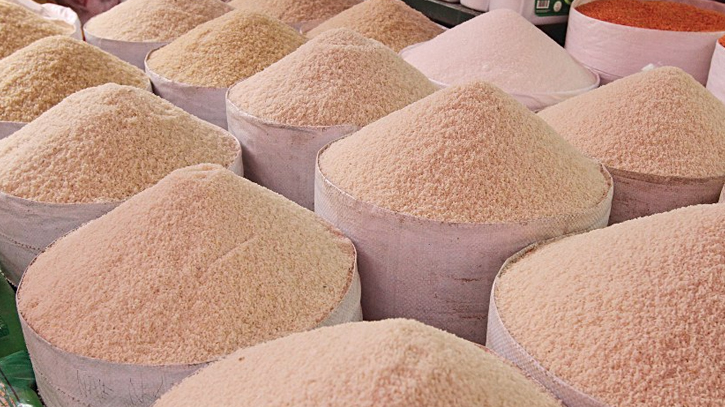
Photo : Collected
The interim government is importing 4 lakh tonnes of rice to stabilize the market which has been unstable for a while now. Along with rice, 4 lakh tonnes wheat will also import. That is the reason the government does not want to have any shortage of food crops including rice and wheat. Consequently,
the current fiscal year 2024-25, the deadline for rice and wheat import has been reduced from 42 days to 15 days under the G2G (Government to Government) system. Finance and trade advisor Dr. Salehuddin Ahmed confirmed the matter. He added that foodgrains are not required to be imported right now, as the storage is enough to sustain for a long time ahead.
However, the government does not want the country to fall into a food shortage. Therefore, an approval has been given for the import of 4 lakh tons of wheat and 4 lakh tonnes of rice. He said, by importing wheat and rice, the stock of foodgrains of the country will be increased. An
expected price rate is now decided. The rice and wheat will be imported after finalizing the price. The adviser also said that after the end of Amon, Boro would need the most fertilizer. The meeting approved the import of fertilizers. The government wants to assure people that there will be no shortage of fertilizers and foodstuffs.
Going to the market one can observe that, in the capital BR-28 and BR-29 varieties are now priced between Taka 60 and Taka 65 per kilogram. Medium-quality Miniket rice has climbed to Taka 70 to Taka 75 per kilogram, while high-quality Miniket rice commands a price of Taka 80 to Taka 85 per kilogram.
Nazirshail rice, which is a premium variety, is similarly priced, with Desi Basmati rice reaching up to Taka 90 to Taka 95 per kilogram. Government data indicates that as of 15 September, there are 1,481,000 tonnes of rice in storage. Although this is less than the previous year’s stock, it is deemed sufficient for the next three months.
The USDA has noted that while there is a slight market shortage, the overall instability is expected to resolve in about two months. According to the information of the Ministry of Food, the target of procurement of 3.5 lakh tonnes of rice from international sources and 19 to 23 lakh tonnes from domestic sources in the current financial year has been set.
Similarly, with the aim of purchasing 4 lakh tonnes wheat from exporting countries on G2G basis and importing 4 lakh tonnes of wheat through international open tenders, the deadline for submission of tenders as per PPR has been set at 15 days instead of 42 days from the date of publication of advertisement in the newspaper. In the current fiscal year, the target of procurement of 7 lakh tonnes of wheat from international sources and 10 thousand tonnes from domestic sources has been set.
In order to keep the food security chain intact along with keeping the government distribution system operational, rice and wheat are imported on G2G basis and through international open tenders. According to the information of the Ministry of Food, currently there is 18 lakh 84 thousand 170 tonnes of foodgrains in the government warehouse. Among them, the stock of rice, the main foodgrain, is 13 lakh 82 thousand tonnes. Stocks of wheat and paddy are 4 lakh 54 thousand and 72 thousand 545 tonnes respectively.
Reviewing the summary of the food budget of the current fiscal year 2024-25, it has been found that there is an allocation of 5 thousand 806 crores for the import of rice and wheat. The previous financial year which was 4 thousand 215 crores, 8 thousand 907 crores have been allocated for domestic procurement of rice and wheat, which was 9 thousand 374 crores in the last fiscal year.
Messenger/Sajib








